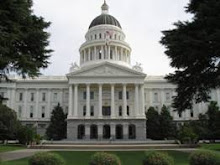DONNING AND DOFFING OF UNIFORMS: COMPENSABLE OR NOT?
The number of lawsuits filed by employees seeking overtime pay, pursuant to the Fair Labor Standards Act (FLSA), for pre and post shift time is continuing to grow, including those cases initiated by peace officers. A variety of peace officer groups who are required to wear uniforms or special protective or safety gear have lawsuits pending because public employers do not provide compensation for time spent putting on (donning) or taking off (doffing) such gear prior to or at the end of work shifts. To date, six district courts have addressed the issue of compensability for donning and doffing of police uniforms in extensive written opinions, with no clear consensus on the issue.
In the case of Martin v. City of Richmond, the district court granted the City's motion for summary judgment regarding the donning and doffing of uniforms, finding such time was not compensable under the FLSA. The Martin court found, however, time spent donning and doffing protective gear, "integral and indispensable" to the work performed, may be compensable under the FLSA, depending of whether such tasks were performed at work or at home, and depending on how much time was incurred.
In the case of Abbe v. City of San Diego, the district court sided completely with the employer, ruling the donning and doffing of both the uniform and protective gear was not compensable because neither the law, the employer's policies, nor the nature of the work required the donning and doffing to be done at work, and if done at home, it was not compensable under the FLSA.
In the case of Vucinich, Maciel v. City of Los Angeles, the district court agreed with the Martin court and ruled that while donning and doffing of uniforms was not compensable, donning and doffing of protective gear was integral and indispensable to the officers' work and was therefore compensable under the FLSA. Unlike the Martin and Abbe courts, the Vucinich, Maciel court did not engage in any analysis of donning and doffing protective gear at home versus at work in finding such time compensable. Following the summary judgment ruling in 2007, this case became Maciel v. City of LosAngeles and went to a bench trial, resulting in a verdict which upheld the summary judgment ruling time spent donning and doffing protective gear was compensable under the FLSA.
In the case of Lemmon v. City of San Leandro, the district court disagreed with the Martin, Abbe, and Vucinich/Maciel cases, and ruled entirely for the peace officers, holding that donning and doffing of both the uniform and special protective gear was compensable under the FLSA. The Lemmon court stated "there is no distinction between the uniform and the equipment because the police uniform, with all of its component parts, functions as an integrated whole that serves as the officer's survival suit." In addition, in direct opposition to the Martin and Abbe decisions, the Lemmon court ruled the compensability of time spent donning and doffing of the uniform and special protective gear did not depend on whether such activity occurred at the employer's premises.
In the matter of Dager v. City of Phoenix, the district court ruled the City did not have an obligation to pay its police officers for the time spent donning and doffing their police uniforms and gear because only those employees actually required to change at work could claim the time spent donning and doffing was compensable, and the uniform itself was not "necessary" to the performance of police work. Finally, in the matter of Bamonte v. City of Mesa, the district trial court granted summary judgment in favor of the City on the officer's donning and offing claims.
The Abbe, Lemmon, and Bamonte summary judgment rulings and the Maciel bench trial decision are now on appeal to the Ninth Circuit Court of Appeal. When the Ninth Circuit decision is published, the application of the FLSA to pre and post shift donning and doffing time will likely become much clearer for California peace officers. Until then, the contrary district court decisions leave public employers unsettled.
Although these cases arise in the context of police departments, they certainly have the potential for far wider reach. If any federal appellate court holds time spent changing in and out of a uniform can be compensable regardless of where it takes place, employers that require employees to wear a uniform on the job can expect a significant number of similar claims to be made by employees in a variety of industries.
Showing posts with label Public Sector. Show all posts
Showing posts with label Public Sector. Show all posts
Friday, July 24, 2009
Tuesday, March 10, 2009
EMPLOYMENT LAW NEWSLETTER
CALIFORNIA SUPREME COURT GREENLIGHTS PUBLIC EMPLOYEE'S WHISTLEBLOWER SUIT
On February 26, 2008, the California Supreme Court, reversing a decision from the California Court of Appeal for the Third District, ruled the California Whistleblower Protection Act does not require state workers to exhaust remedies with the State Personnel Board before seeking damages in court. The decision in the matter of the State Board of Chiropractic Examiners (SBCE) v. Superior Court, Caroline M. Arbuckle, Real Party In Interest, stems from Carole Arbuckle reporting to her supervisor at the SBCE, that the SBCE chairperson had allowed her professional license to lapse, and asking several times whether she should issue the chairperson a citation. The complaint alleged as a result of Arbuckle's reporting, she experienced a "stressful work environment, including numerous indignities, disputes and acts of favoritism." Further, Arbuckle's duties were changed, she was transferred to a different unit, and her requests for a modified work schedule were denied. She complained to the State Personnel Board in July 2002, alleging whistleblower retaliation, but the board dismissed her complaint. Rather than appealing the board's decision, she sued the SBCE in Superior Court. The SBCE moved for summary judgment, arguing Arbuckle had not exhausted her administrative remedies, and the trial court denied that motion. The SBCE appealed that ruling to the appellate court, which held the trial court should have granted the defendant summary judgment. The Third District ruled the law required the employee to appeal the board's adverse decision to an administrative law judge, and if the board denied an ALJ hearing, the employee should have sought a writ of mandate from the courts to set aside the board decision. Thereafter, the Supreme Court granted Arbuckle's petition for review.
The California Supreme Court found the plain language of the California Whistleblower Protection Act requires only that state employees file a complaint with the personnel board before seeking damages in superior court. The Supreme Court held the state whistleblower law gives employees the right to seek a "completely separate damages action," eliminating the need for the exhaustion of administrative remedies: "[e]xhaustion of every possible state of administrative process is not particularly necessary where the civil action that the Legislature authorized is not one to review the administrative decision, but rather a completely independent remedy."
Please direct any questions or comments you have regarding this item to Basham Parker Attorney and Partner, Alden J. Parker. Mr. Parker has extensive experience representing public employers in matters of litigation, agency claims and hearing, and workplace training.
COMING SOON: THE EMPLOYEE FREE CHOICE ACT
On March 3, 2009, AFL-CIO Executive Council member and union leader James Williams said he expects the controversial Employee Free Choice Act to pass in the next four or five months. On March 2, 2009, Secretary of Labor Hilda Solis met with the Executive Council and Vice President Joe Biden conducted a closed-door address to AFL-CIO leaders on March 4, 2009.
The meetings between high-ranking government officials and union leaders illustrate a marked difference between the relationship organized labor enjoys with the Obama administration compared to the relationship with the Bush administration. Williams stated, the Council is trying to touch base with Capitol Hill and line up the necessary votes to get the EFCA though Congress. Although Democrats lack a filibuster-proof majority in the Senate, Williams suggested additional support from "friendly Republicans."
DOL PRELIMINARY GUIDANCE ON ECONOMIC STIMULUS PACKAGE COBRA SUBSIDY
The U.S. Department of Labor has issued preliminary direction on how the COBRA subsidy recently passed by Congress as part of the economic stimulus package should be handled by employers, noting additional guidance is still being prepared. COBRA programs give workers who lose their employer-sponsored health benefits the right to continue those benefits for a limited period of time; however, individuals who qualify can be required to pay the entire premium for coverage - up to 102% of the cost of the plan, an expense that can be too expensive for many workers who find themselves without a job. The stimulus bill passed by Congress last month, known as the American Recovery and Reinvestment Act of 2009 (ARRA), provided for a 65% government subsidy of the premiums paid for health care coverage under COBRA programs for up to nine months.
Those who can take advantage of the subsidy are employees who were eligible for COBRA continuation coverage between September 1, 2008, and December 31, 2009, and were involuntarily terminated during that period. Employees who can be covered under another health plan, such as one provided by their spouse's employer or Medicare, are not eligible for the subsidy.
The subsidy will apply to premiums paid for periods of COBRA coverage beginning on or after February 17, 2009. Those eligible for the subsidy will be treated as having paid the full premium and the 65% reduction will be reimbursable to the employer, insurer, or health plan as a credit against certain employment taxes.
Employees who were laid off between September 1, 2008, and February 16, 2009, who did not elect COBRA coverage when it was first offered, or who did elect it but are no longer enrolled, have a new 60-day post employer notice window to elect subsidized coverage.
Income standards have been clarified as well. If a worker's income exceeds $145,000 (or $290,000 for joint filers) in the year he or she receives a premium deduction, the subsidy reduction amount will have to be repaid in full. Taxpayers who make between $125,000 and $145,000 (or between $250,000 and $290,000 for joint filers) will have to repay a portion of the premium reduction.
The Labor Department is developing an appeals process for those who think they have been improperly denied eligibility for the COBRA premium reduction and, as earlier set forth, additional guidance on the COBRA subsidy program should be released soon.
Employers are reminded they are still required to notify affected employees of their right to elect COBRA coverage, and that the employee and his or her family have 60 days to make that decision before they lose rights to those benefits.
FAIR EMPLOYMENT AND HOUSING COMMISSION ISSUES COMPARISON TABLES
Continuing its efforts to navigate employers through the vast and complex workplace laws related to the employment of individuals with disabilities and related leave issues, the California Fair Employment and Housing Commission has developed two useful tables: the first comparing the Americans with Disabilities Act, the ADA Amendments Act of 2008, and related provisions of the Fair Employment and Housing (ADA/ADAAA/FEHA Table); and the second comparing the differences between the new Family and Medical Leave Act and the California Family Rights Act and pregnancy disability leave law (FMLA/CFRA/PDL Table).
EMPLOYMENT LAW ALERT UPDATE: GINA REGULATIONS
As Basham Parker first reported in its February 27, 2009, Employment Law Alert, the Equal Employment Opportunity Commission issued proposed regulations intended to implement the Genetic Information Nondiscrimination Act of 2008 (GINA). Those proposed rules have now been posted and are available for viewing on the EEOC website (GINA Regulations). Comments regarding this proposal must be received by the Commission on or before May 1, 2009. Basham Parker welcomes your comments and questions regarding these proposed regulations by email to clientservices@bashamparker.com.
BASHAM PARKER IN THE NEWS
Basham Parker is pleased to acknowledge Attorney and Partner, Alden J. Parker, for his recent contributions to the February 2009 edition of Comstock's Magazine. Parker was interviewed by Bill Romanelli regarding the Worker Adjustment and Retraining Notification Act (WARN), comparable California State WARN law (often referred to as "baby WARN), newly enacted federal and California State legislation (including Assembly Bill 28), and the status of specific California State case law (Brinker Restaurant Corp. v. Superior Court of San Diego County). The article is titled, "You've Been WARNed," and Parker's comments may be viewed online (Comstock's Magazine, "You've Been WARNed").
WELCOME NEW ATTORNEY RACHAEL JUNG
Basham Parker is pleased to announce Rachael Jung has joined the Firm as an Associate Attorney in its San Francisco Bay Area office. Rachael received her Bachlor of Arts degree in Psychology and Legal Studies from the University of California, Berkeley, and her Juris Doctor from Pepperdine University School of Law. She brings to Basham Parker additional legal experience focused on employment law matters. Please join us in welcoming Rachael to our Firm.
On February 26, 2008, the California Supreme Court, reversing a decision from the California Court of Appeal for the Third District, ruled the California Whistleblower Protection Act does not require state workers to exhaust remedies with the State Personnel Board before seeking damages in court. The decision in the matter of the State Board of Chiropractic Examiners (SBCE) v. Superior Court, Caroline M. Arbuckle, Real Party In Interest, stems from Carole Arbuckle reporting to her supervisor at the SBCE, that the SBCE chairperson had allowed her professional license to lapse, and asking several times whether she should issue the chairperson a citation. The complaint alleged as a result of Arbuckle's reporting, she experienced a "stressful work environment, including numerous indignities, disputes and acts of favoritism." Further, Arbuckle's duties were changed, she was transferred to a different unit, and her requests for a modified work schedule were denied. She complained to the State Personnel Board in July 2002, alleging whistleblower retaliation, but the board dismissed her complaint. Rather than appealing the board's decision, she sued the SBCE in Superior Court. The SBCE moved for summary judgment, arguing Arbuckle had not exhausted her administrative remedies, and the trial court denied that motion. The SBCE appealed that ruling to the appellate court, which held the trial court should have granted the defendant summary judgment. The Third District ruled the law required the employee to appeal the board's adverse decision to an administrative law judge, and if the board denied an ALJ hearing, the employee should have sought a writ of mandate from the courts to set aside the board decision. Thereafter, the Supreme Court granted Arbuckle's petition for review.
The California Supreme Court found the plain language of the California Whistleblower Protection Act requires only that state employees file a complaint with the personnel board before seeking damages in superior court. The Supreme Court held the state whistleblower law gives employees the right to seek a "completely separate damages action," eliminating the need for the exhaustion of administrative remedies: "[e]xhaustion of every possible state of administrative process is not particularly necessary where the civil action that the Legislature authorized is not one to review the administrative decision, but rather a completely independent remedy."
Please direct any questions or comments you have regarding this item to Basham Parker Attorney and Partner, Alden J. Parker. Mr. Parker has extensive experience representing public employers in matters of litigation, agency claims and hearing, and workplace training.
COMING SOON: THE EMPLOYEE FREE CHOICE ACT
On March 3, 2009, AFL-CIO Executive Council member and union leader James Williams said he expects the controversial Employee Free Choice Act to pass in the next four or five months. On March 2, 2009, Secretary of Labor Hilda Solis met with the Executive Council and Vice President Joe Biden conducted a closed-door address to AFL-CIO leaders on March 4, 2009.
The meetings between high-ranking government officials and union leaders illustrate a marked difference between the relationship organized labor enjoys with the Obama administration compared to the relationship with the Bush administration. Williams stated, the Council is trying to touch base with Capitol Hill and line up the necessary votes to get the EFCA though Congress. Although Democrats lack a filibuster-proof majority in the Senate, Williams suggested additional support from "friendly Republicans."
DOL PRELIMINARY GUIDANCE ON ECONOMIC STIMULUS PACKAGE COBRA SUBSIDY
The U.S. Department of Labor has issued preliminary direction on how the COBRA subsidy recently passed by Congress as part of the economic stimulus package should be handled by employers, noting additional guidance is still being prepared. COBRA programs give workers who lose their employer-sponsored health benefits the right to continue those benefits for a limited period of time; however, individuals who qualify can be required to pay the entire premium for coverage - up to 102% of the cost of the plan, an expense that can be too expensive for many workers who find themselves without a job. The stimulus bill passed by Congress last month, known as the American Recovery and Reinvestment Act of 2009 (ARRA), provided for a 65% government subsidy of the premiums paid for health care coverage under COBRA programs for up to nine months.
Those who can take advantage of the subsidy are employees who were eligible for COBRA continuation coverage between September 1, 2008, and December 31, 2009, and were involuntarily terminated during that period. Employees who can be covered under another health plan, such as one provided by their spouse's employer or Medicare, are not eligible for the subsidy.
The subsidy will apply to premiums paid for periods of COBRA coverage beginning on or after February 17, 2009. Those eligible for the subsidy will be treated as having paid the full premium and the 65% reduction will be reimbursable to the employer, insurer, or health plan as a credit against certain employment taxes.
Employees who were laid off between September 1, 2008, and February 16, 2009, who did not elect COBRA coverage when it was first offered, or who did elect it but are no longer enrolled, have a new 60-day post employer notice window to elect subsidized coverage.
Income standards have been clarified as well. If a worker's income exceeds $145,000 (or $290,000 for joint filers) in the year he or she receives a premium deduction, the subsidy reduction amount will have to be repaid in full. Taxpayers who make between $125,000 and $145,000 (or between $250,000 and $290,000 for joint filers) will have to repay a portion of the premium reduction.
The Labor Department is developing an appeals process for those who think they have been improperly denied eligibility for the COBRA premium reduction and, as earlier set forth, additional guidance on the COBRA subsidy program should be released soon.
Employers are reminded they are still required to notify affected employees of their right to elect COBRA coverage, and that the employee and his or her family have 60 days to make that decision before they lose rights to those benefits.
FAIR EMPLOYMENT AND HOUSING COMMISSION ISSUES COMPARISON TABLES
Continuing its efforts to navigate employers through the vast and complex workplace laws related to the employment of individuals with disabilities and related leave issues, the California Fair Employment and Housing Commission has developed two useful tables: the first comparing the Americans with Disabilities Act, the ADA Amendments Act of 2008, and related provisions of the Fair Employment and Housing (ADA/ADAAA/FEHA Table); and the second comparing the differences between the new Family and Medical Leave Act and the California Family Rights Act and pregnancy disability leave law (FMLA/CFRA/PDL Table).
EMPLOYMENT LAW ALERT UPDATE: GINA REGULATIONS
As Basham Parker first reported in its February 27, 2009, Employment Law Alert, the Equal Employment Opportunity Commission issued proposed regulations intended to implement the Genetic Information Nondiscrimination Act of 2008 (GINA). Those proposed rules have now been posted and are available for viewing on the EEOC website (GINA Regulations). Comments regarding this proposal must be received by the Commission on or before May 1, 2009. Basham Parker welcomes your comments and questions regarding these proposed regulations by email to clientservices@bashamparker.com.
BASHAM PARKER IN THE NEWS
Basham Parker is pleased to acknowledge Attorney and Partner, Alden J. Parker, for his recent contributions to the February 2009 edition of Comstock's Magazine. Parker was interviewed by Bill Romanelli regarding the Worker Adjustment and Retraining Notification Act (WARN), comparable California State WARN law (often referred to as "baby WARN), newly enacted federal and California State legislation (including Assembly Bill 28), and the status of specific California State case law (Brinker Restaurant Corp. v. Superior Court of San Diego County). The article is titled, "You've Been WARNed," and Parker's comments may be viewed online (Comstock's Magazine, "You've Been WARNed").
WELCOME NEW ATTORNEY RACHAEL JUNG
Basham Parker is pleased to announce Rachael Jung has joined the Firm as an Associate Attorney in its San Francisco Bay Area office. Rachael received her Bachlor of Arts degree in Psychology and Legal Studies from the University of California, Berkeley, and her Juris Doctor from Pepperdine University School of Law. She brings to Basham Parker additional legal experience focused on employment law matters. Please join us in welcoming Rachael to our Firm.
Labels:
ADA,
ADAAA,
CFRA,
COBRA,
EFCA,
FEHA,
FMLA,
GINA,
PDL,
Public Sector,
Stimulus Package,
Whistleblower
Subscribe to:
Posts (Atom)








